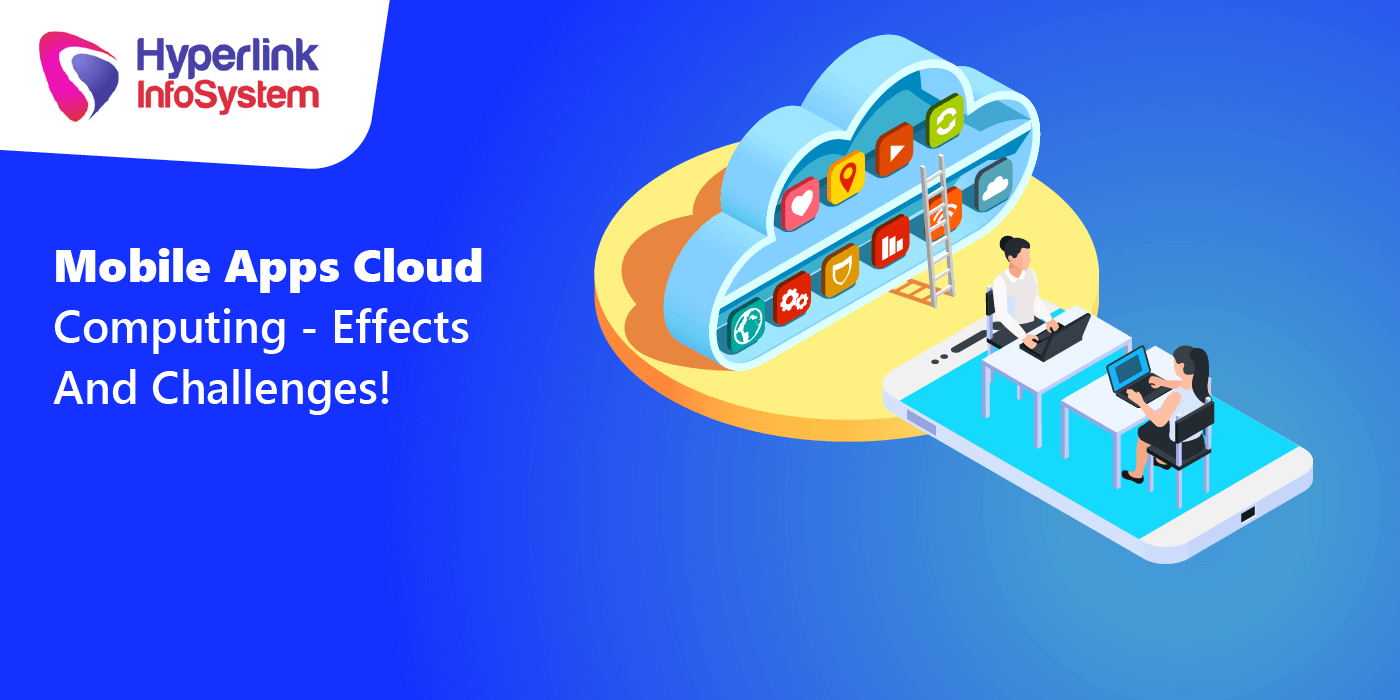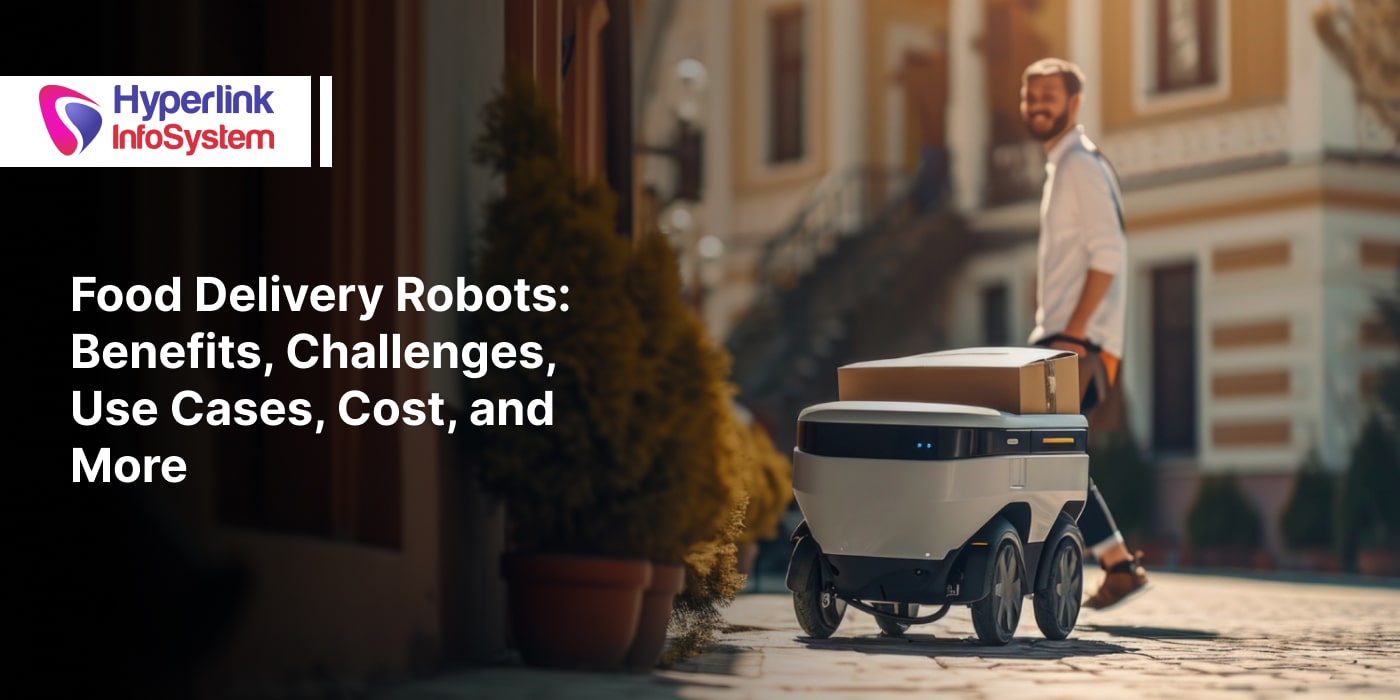In today's world, the number of smartphones and smartphone users is increasing at a fast-pace. The outspread of smartphones has highlighted the concept of cloud computing. Mobile cloud computing is a process of syncing cloud computing inside the mobile environment. Also, it defeats potential challenges like performance, security, app challenges, and similar problems.
With the further expansion of cloud technology, all mobile app development companies will have to embrace cloud computing for mobile apps to achieve success.
For the people who have been industry's part for a long time, it is obvious to be familiar with the concept of cloud computing. However, it is not that easy for the app amateurs. They feel confused with so many jargons that surround mobile computing and mobile cloud applications.
This article will focus on the effects and challenges of cloud computing in mobile apps. Before moving further, let's first know what cloud computing is.
What is Cloud Computing?
There has been a lot of buzz around cloud technology, but one thing is for sure is that it is not a fad. The process of shifting from conventional software on the web has been going on for years now.
Cloud computing or Cloud technology can be defined as on-demand network access to a bundle of resources without any communication with the service provider. Cloud computing promises fast and easy availability of parts of essential resources to customers who are charged based on usage. The shared resources such as software, mobile apps, and other services are rendered to smartphone and computer users when demanded.
Moreover, cloud computing enables clients to adjust their computing capacity based on their needs for a given task at a given time. Clients don't have to stress about the processing power or storage and can receive incredible outcomes without quality compromise.
What is a Cloud Mobile App?
Cloud mobile app enables
top app developers india to create apps, specifically for mobile users. The users can use these apps regardless of the device storage capacity or operating system. Although the cloud apps and services have native features, a significant part of the processing is performed on a remote cloud server. These are some well-known examples of mobile apps- Dropbox, Apple's iCloud services, and Asana.
Impacts of Cloud Computing in Mobile Apps
The introduction of cloud computing in mobile apps has given developers a chance to add unique features in apps that no one thought a few years back.
1. Platform Compatibility
Cloud computing tech declined the need for creating separate apps for multiple OS platforms. Cloud mobile apps, unlike native apps, are compatible across various platforms, which prevents the development cost and time both.
Cloud computing tech enables developers to create a single app and release it parallelly across platforms like iOS and Android. Since the app is saved on the cloud and not a platform, users face no access issues as long as they have a steady web connection.
2. Cost Reduction
Even though a native mobile app's development cost tends to differ based on the features, design, and general complexity of the app, it is still not an inexpensive affair.
On the other hand, cloud apps mitigate the development cost since there is only one app to develop for various platforms.
A single codebase is a suitable choice for small companies or startups that don't have huge budgets to invest in a native mobile app for iOS and Android.
Many new developers tend to neglect the ongoing maintenance costs linked with an app. For an app to work correctly, it must be preserved and updated to remove errors and setbacks.
3. Scalability
Scalability refers to an app's features to expand its capacity and functions to match increasing user demands.
The cloud app users don't have to install the new attributes to their device or update their apps each time they make changes to the app. This can be done with native apps too, but the cost and intricacies are higher than the cloud mobile apps.
4. No Need for Storage Space in the Mobile Devices
All the cloud-based app data is saved on a cloud server that is placed remotely and can be reached through a connected web device. Cloud apps also remove the installation process since they run from a browser.
Thus, cloud apps do not need space on the mobile device for proper operation. Despite low storage space on a smartphone, the user doesn't have to create a free space to access a cloud-based app. They usually work like the web-based apps and can be reached instantly from the central server.
Challenges for Cloud Computing in Mobile Apps
Utilizing cloud computing concepts in mobile apps is about rendering a mobile app in the cloud via a cloud service provider and later delivering it to the end-user with a web-connection.
The components in this process have some challenges that obstruct the omnipresence of cloud-based apps.
1. Information Security
Security is the primary concern for cloud apps since they save and process user's information.
Top app development companies need to work jointly with third-party cloud service providers to ensure all the policies about user authentication, general communications security, and access control have complied, and steps are taken to impose them.
2. Absence of Quick Internet Access
Users need a steady web connection to get smooth access to a cloud app. However, most parts of the world still suffer from a low-speed web connection.
Even though most providers now offer LTE services to solve the connectivity problems, users cannot avail of the rich features of cloud-based apps that need fast internet access.
3. Resource Deficiency of Smartphones
Even though smartphones render the mobility feature, it comes at the cost of reduced processing power, network bandwidth, and memory. The resource deficiency of mobile devices is a major concern for the adoption of cloud-based apps. The inconsistency between computers and mobile phones must be reduced to run high-end cloud-based apps on mobile devices.
Final thoughts
The usage of cloud computing in mobile apps will be a major trend in the upcoming years. Advantages like compatibility, scalability, and cost reduction makes the concept of cloud-based mobile apps even more solid. This tech is still in its growing stage. The time is not far when the companies will take a step in this direction and address the issues mentioned above to render a better user experience.

























